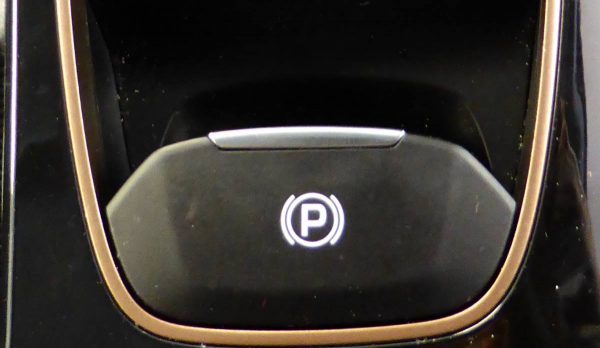What to do if your brakes fail while driving
While it’s unlikely that you will experience complete brake failure, some motorists will experience a reduction in braking power at specific times, depending on what type of driving they do. There are three things that cause this:
- Brake fade
- Driving through water
- Loss of brake fluid
Brake fade occurs when you boil your brake fluid due to too much braking. It’s common for this to happen on long downhill stretches if you are towing a heavy trailer and the heat that needs to be dissipated is a lot more than normal.
Driving through water is very common in some places in the UK as there are many fords. Brake moderately as you approach the ford, then drive through slowly. Dry your brakes afterwards by applying them as you drive away. The residual heat from the moderate braking will help evaporate the water, and the squeegee effect of the pads will do the rest.
Loss of brake fluid is much less common and you will see a warning light on your dashboard if this happens. If you ‘pump’ the brakes, this is often enough to get a final bit of braking power sufficient to stop the car.
But what if you are travelling downhill and picking up speed because your brakes aren’t working? Here’s what you do.
Move left
If you’re on a dual carriageway or motorway, move to the left as soon as you can so that you can get onto the verge or hard shoulder. This way you won’t hold up traffic.
Escape routes
If you are heading towards a queue of traffic and your brakes aren’t working, look for escape options – the hard shoulder, for example. Verges, hedges and bushes will bring you to a stop. If you absolutely have no choice but hit something from behind, try to hit the biggest vehicle to minimise injuries to other vehicle occupants – a lorry with a trailer, for example. Don’t steer into oncoming traffic.
Look for a side road or long driveway, especially if it goes uphill.
Change down gears
You can use engine braking to reduce your speed. Change down to the lowest gear you can without exceeding the red line on your rev counter. If you are in a vehicle with a manual gearbox, skip from 6th down to 3rd or 2nd – it should be fine as most vehicles will do 60-70mph in second gear, if not third gear. Bear
If your vehicle is automatic, use your sequential gears, or put it in L.
If your vehicle is electric, use B. Many electric cars have variable regenerative braking that is the equivalent of light to moderate braking in a fuel-powered vehicle.
Lorries will have extra engine braking, also called jake brakes.
Apply the handbrake or electronic parking brake
Once your speed is below 15mph, applying the handbrake will bring you to a stop quickly. As the handbrake only usually works on the rear wheels, it does increase the risk you could lose control and spin out.

Don’t yank the handbrake up quickly otherwise you could lock the rear wheels
For vehicles with an electric parking brake (i.e. a switch to apply the parking brake) simply apply this at any speed and the car should come to a controlled stop.

Turn on your air conditioning
Air conditioning creates a drag on the engine. Apply the coldest temperature and the maximum fan speed. Other devices in your vehicle create a minor drag on the engine, too, but negligible.
Use kerb and verges
Running your wheels gently against the kerb will help you slow down, although it will cause tyre and wheel damage. A soft verge will also slow you down. Avoid taller stone walls as they are more likely to spin or flip your car.
Mistakes when brakes fail
Don’t put your gearbox in neutral as you’ll have no engine braking, and definitely don’t put it in reverse. Don’t weave from side-to-side because you increase your risk of losing control, even though you will create more resistance on the car.
How to approach a long downhill slope

The faster you go, the more energy you have to dissipate to stop. If you know the slope will be long and steep, slow down before you reach it and put your vehicle in a low gear. If your brakes start to feel spongy and you are losing the ability to slow down, it’s important to act immediately to slow down as much as possible before your brakes give up completely using a combination of the advice above. With the little remaining brake power you have, you should be able to stop safely unless the road is very steep.
- Understanding the National Standards for Riding Mopeds and Motorcycles
- Livestock Transport Rules UK: A Complete Guide to Animal Transportation Requirements
- The Role of Safety Advisers in Dangerous Goods Transport
- Sustainable Driving: Reducing Your Environmental Impact on the Road
- Developing Effective Lesson Plans for Driver Training
- UK Agricultural Vehicle Registration and Tax Relief
- Challenges of Transporting Radioactive Materials (Class 7)
- Exemptions and support for Clean Air Zone charges
- Navigating Legal Requirements: The UK Motorcycle Licensing Rules
- Safe Transportation of Agricultural Chemicals and Hazardous Materials
- Innovations in Vehicle Construction for ADR Compliance
- Motorcycle Recovery Operations: How to Recovery a Broken Down Motorbike
- Alternative Fuels in Agricultural Vehicles
- Carriage of Dangerous Solids in Bulk Containers
- Understanding Limited Quantity Exemptions in ADR